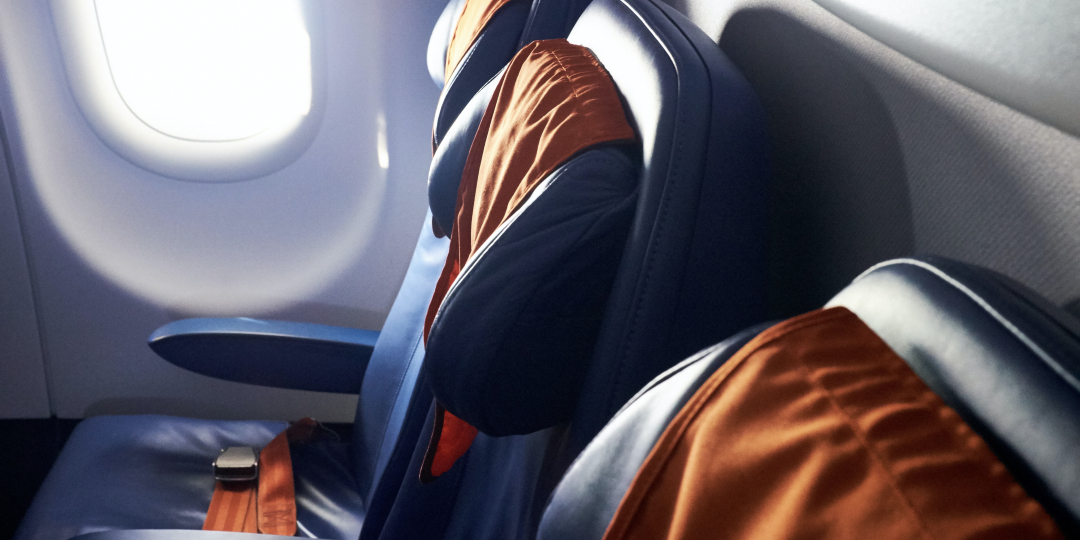Unruly and disruptive airline passenger behaviour is on the rise.
In 2021, one incident per 835 flights was reported. In 2022, one incident was reported for every 568 flights – this is an almost 50% increase in incidents in one year.
And, with the same conditions that bred the behaviour continuing this year, we should expect that 2023 will reflect another rise.
Disruptive passenger incidents in 2023 included the following:
*A passenger opened an aircraft door and used the emergency slide as the aircraft prepared for take-off. After jumping on a baggage cart on the apron, he was detained by airport crew until police arrived. He was sent for a mental evaluation and the FBI was notified. All passengers had to deplane and board another aircraft.
* During boarding at San Francisco a man took multiple swings at other passengers and a flight attendant when he was asked to move out of someone else's assigned seat. Despite attempts to restrain him, he ran to the emergency exit and was able to open it, but he was restrained from jumping from the door (a two-storey height) and held until the law arrived.
* On an aircraft about to land in South Korea, a man opened an emergency exit while the aircraft was still about 220m in the air. Video recorded by other passengers shows the door partially opened and the wind roaring through the aircraft as passengers screamed in fear.
* Passengers were spooked when they received an AirDropped photo on a flight from Las Vegas to Hawaii, which implied there was a bomb on board (AirDrop is a system allowing file sending to nearby phone users). The flight was obliged to land at Oakland International as the incident had to be treated as a bomb threat.
*A passenger was arrested in Louisiana after he injured himself and a flight attendant with a sharp object while the aircraft was on the ground. He was charged with aggravated battery, disturbing the peace and simple battery.
Iata says in its latest Airline Magazine, that the most common events categorised as ‘Unruly Passenger Incidents’ are non-compliance, smoking, failure to fasten seatbelts, exceeding the carry-on baggage allowance or failing to store baggage when required to, consumption of own alcohol on board, verbal abuse and intoxication.
"It seems like behaving angry and belligerent has become more acceptable in the last five to seven years," Jared Kenworthy, Professor of Psychology at the University of Texas, Arlington, told USAtoday.com.
"It's just more acceptable to be pissed off and angry all the time... It may be because everybody's putting them on social media."
A combination of political polarisation, high travel costs, a turbulent economy and post-traumatic stress from the COVID-19 pandemic could all be contributing factors.
Bad behaviour due to excessive alcohol intake probably takes the lead. Lounge access is easier than previously, with frequent flying being only one of many means of gaining entry. Retail loyalty programmes, bank cards and hard cash are also means of access, and in the lounges, passengers have access to free alcohol before boarding.
Fortune Magazine believes there is also higher anxiety since the pandemic and a general feeling of annoyance over high ticket prices, and since the travel surge began in 2021, chaotic airports, lost luggage and flight delays and cancellations as carriers struggle with reduced capacity.
Disputes over mask rules drove the majority of conflicts on aircraft during the pandemic. Reported incidents went from 165 in January 2021 to 720 in March of that year.
What are the consequences of unruly behaviour?
It’s important that airlines have the necessary legal authority to prosecute unruly passengers, regardless of the state of aircraft registration, plus a range of enforcement measures that reflect the severity of the incident. Iata says for this to happen, jurisdictional gaps must be eradicated.
Montreal Protocol 14 (MP14) gives countries the legal power to prosecute unruly passengers, but as at June 2023, only 45 countries, together making up 33% of all international traffic, had ratified MP14. Clearly, there are big gaps and this can mean that disruptive behaviour on an aircraft can go unpunished.
France, Australia, Canada, the UK, and the US have extended jurisdictional provisions to include aircraft in ‘the state of landing’ under national law. This means that France, for example, can take jurisdiction over unruly passenger incidents upon landing in a French territory, regardless of the state where the aircraft is registered and whether or not that state is a ratifier of MP14.
The US has a zero-tolerance approach. If a crew member or other passenger is threatened or assaulted, action will be taken against the offender. In 2022, fines totalling $8,4m (R157,3m) were issued, and the most serious cases were referred to the FBI to pursue criminal prosecutions.
Many airlines maintain individual lists of banned unruly passengers, but data protection laws in the US and Europe mean airlines cannot share this information with other airlines.
“The increasing trend of physical abuse is particularly worrying, and governments must enforce the law and penalise offenders. Passengers and crew are entitled to a safe and hassle-free experience on board,” said Iata.














